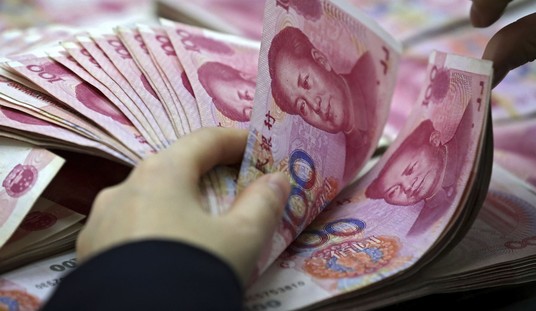When Walid Jumblatt’s father was asssinated by the Syrians, the leader of the Druze threw his political support behind the murderers of his father for reasons of state. Then following the 2005 car-bomb killing of Rafik Hariri, he switched. The reason was simple. The tide had turned against the Syrians and, with US troops poised on the Iraqi border across from Damascus, it seem as if the Assads would not survive. After flirting with the Syrians again, Jumblatt until recently said he would support the Saudi plan that would avert a direct confrontation over the indictments expected from the special tribunal, indictments which are expected to implicate Hezbollah in the murder of Rafik Hariri. Now, he has switched again.
Jumblatt has thrown his support behind Hezbollah, thereby setting the stage for its political domination of Lebanon. Saad Hariri’s determination to form a new government indicated a long struggle for Hezbollah. By defecting to Hezbollah, Jumblatt is essentially attempting to avert a struggle for Lebanon, as Chamberlain did by conceding at Munich.
Walid Jumblatt, a Druze leader from Lebanon’s opposition camp, has announced his support behind Hezbollah in a move that could give the group and its allies a veto over who becomes the country’s next prime minister.
Hezbollah, which has a parliamentary bloc as well as a powerful military wing, commands overwhelmingly support among Lebanon’s Shia Muslim community.
Jumblatt said the aim of his decision on Friday was to preserve Lebanon’s stability.
“Preserving stability” is a code word for averting a new civil war. Kamal Jumblatt’s death was one of the major accelerating events in the Lebanese civil war and there are clearly fears that Rafik Hariri’s death will set in train another national bloodletting.
The cynicism of Jumblatt’s decision to back Syria is matched only by Michel Aoun‘s. Aoun, who once battled the Syrians, is now their ally in Lebanon. Both are a vote on the efficacy of Western diplomacy, which managed to throw away the all its gains since 2005 in exchange for a vague promise of engagement with Damascus and Teheran that is still as vague as ever. The men on the ground are going with the Strong Horse, as the Globe and Mail put it:
Call him a survivor.
Walid Jumblatt, godfather of Lebanon’s 300,000 Druze, has an uncanny knack for allying himself with the right people at the right time.
The real question is how long the remaining opponents of Hezbollah, the Lebanese Forces and Hariri’s own Sunnis, can hold out. Will they make a fight of it, thereby dragging in Israel? Or will they surrender thereby destroying the old Lebanon and dragging Israel in just the same? Western diplomacy now only seems able to count its lost chances and hurry the worry beads through its fingers in concern. From all indications they are hoping for a “peaceful” Hezbollah takeover now that their own efforts have failed. CBS News says:
Syria and Qatar appeared to have made no progress Thursday in their efforts to forge a compromise among rival Lebanese groups. Both sides recognize that major difficulties still lay ahead, but hope, however, the situation will not go from bad to worse. …
“Talks during the meeting dealt with bilateral ties between the two countries and latest regional developments, in particular in Lebanon in light of the stumbling of efforts aiming to find a solution,” a presidential statement read after the lengthy talks.
“Both leaders underlined the importance of stability and security and the need for preventing the escalation of the situation in Lebanon,” the statement said, giving no further details on the content of the talks.
Syria and Qatar fear instability in Lebanon could have consequences in the wider region. The Turkish government is also reportedly aiming to rally an international conference to help Lebanon to form a government.
The steady concession to Syria and Iran recall the much larger events of 1938 in Munich.To Neville Chamberlain, Munich meant “peace in our time”. A year later, Hitler was telling his generals on the eve of invading Poland: “our enemies are little worms (kleine Wurmchen); I came to know them in Munich.”
Now Poland is in the position in which I wanted her.
We need not be afraid of a blockade. The East will supply us with grain, cattle, coal, lead and zinc. It is a mighty aim, which demands great efforts. I am only afraid that at the last moment some cur (Schweinehund) or other will yet submit to me a plan for mediation.










Join the conversation as a VIP Member